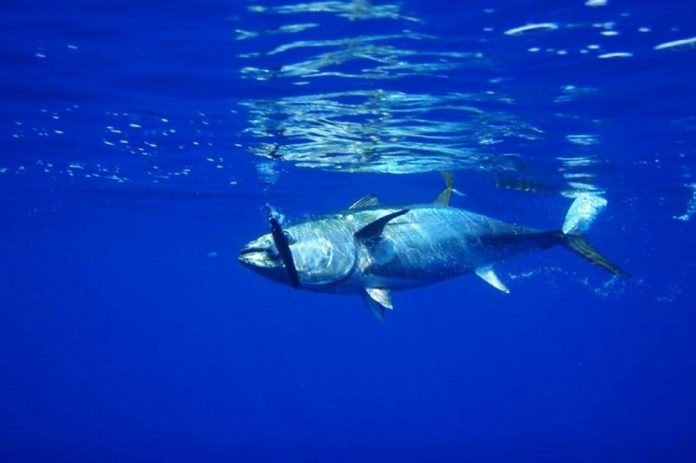Tuna that have been exposed to pollution for a long period of time have been shown to be the source of chemicals that impede or shut down the cellular mechanism that rids the body of toxic materials naturally. Researchers from the Scripps Institution of Oceanography at the University of California at San Diego are the first to show that common agricultural chemicals and even flame retardants have made tuna and potentially other seafood toxic to humans.
Every cell in the human body contains a protein called permeability-glycoprotein. Permeability-glycoprotein protects the cells of the body from toxins by binding with the toxins and expelling them from the cells. The researchers examined the content of the urine of infants and the number of common pollutants in tuna caught in the waters of the Gulf Coast of the United States. The idea is that infants are more susceptible to the effects of pollutants because the systems that produce permeability-glycoprotein have not fully developed in infants.
Adults and children that ate a large amount of tuna had more pollutants in their body and had a less effective defense against toxins than people that did not eat fish. Pollutants like DDT that have been abandoned due to known toxic effects on animals and people are still present in fish due to run off from agriculture. The pollutants can make the natural defenses of the body null and void.
The researchers suggest that a system for the examination of environmental chemicals for the capacity to impede natural body functions be implemented by the FDA. The majority of people think that fish is good for them. The new study finds that the “natural goodness” of Gulf Coast tuna and seafood is highly questionable.















